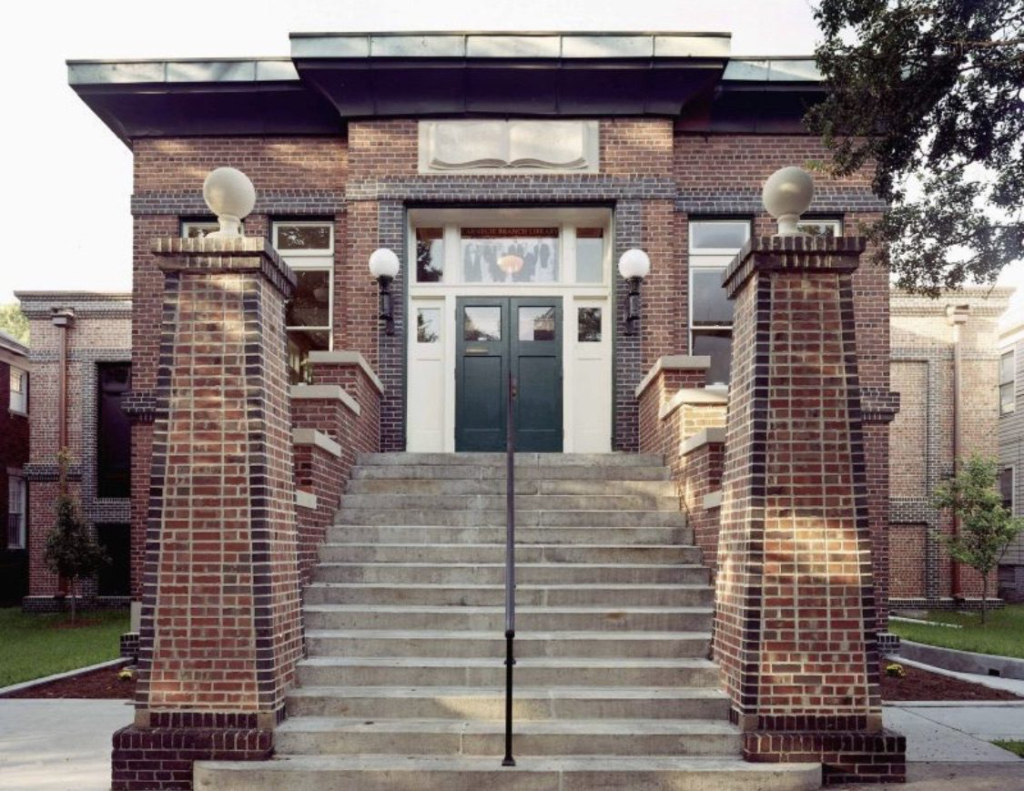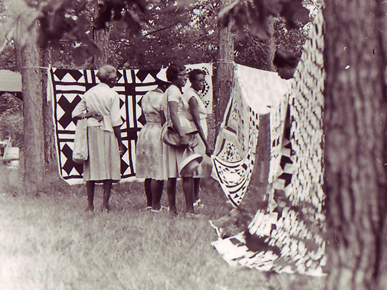Ujamaa Got Dem Dey 40 Acres and a Mule

:: To build and maintain our own stores, shops and other businesses and to profit from them together
We know about Black Wall Street, and I hope we know there were many Black Wall Streets, likely one in your hometown too. Learn more about that here.
Here go some of my favorite cooperatives. A cooperative, by the way, is a business created from a mutual need. Everybody got the same problem, so let’s invest our money, time, and/or skills in this one business so we can get what we need and quit complaining.
New Orleans Social Clubs
We know the parading krewes that grew out of em. Shoutout to Zulu (the biggest), the Young Men Olympian (the oldest), the Original N.O. Lady Buckjumpers, Gentlemen of Leisure, NOMTOC, the Big Nine, etc. But did you know the krewes started out as social clubs (aka benevolent societies)?
They been around awhile. YMO started in 1884 and the Zulus started around 1909. In addition to being like extended family for each other, social clubs were basically insurance for when members got sick, injured, or died. They second line for their deceased members too. They still do for the community with holiday giveaways, scholarships, etc. A pot with a lil money from a lotta people can make thangs happen. The social clubs proved that.

Carnegie Library
In 1903, the City of Savannah opened a library for white people. Three years later, 11 black businessmen put their money together to build their people one. They started off SUPER small, in a doctor’s office on the corner of Price and Hartridge. Yup, you’d go to a doctor’s office, which was also black-owned, to borrow books that were donated.
Seven years later, in 1913, they applied for a grant which required proof of land ownership and matching funds. So the $12,000 they were approved for, they had to match. They made it happen tho. Meanwhile, the white folks’ library was still housed in one room of the Georgia Historical Society. They ain’t have their own building til 1916, so Carnegie was actually Savannah’s first public library. White folks banned us from their library til 1963, but they sho ain’t mind using ours.

The Freedom Quilting Bee
The Freedom Quilting Bee was started by women sharecroppers/quilters in 1966 in Wilcox County, Alabama. A white episcopal priest presented them with the idea to sell quilts. They’d been quilting for generations! Who would wanna buy these old thangs? They didn’t know the same bold colors and shapes they were quilting were in vogue in NYC. One of the priest’s friends suggested a New York auction. The quilters agreed, but they preferred to stand as a group rather than individual creators/sellers. (Sharecropping lessons.)
Minder Coleman, a black woman quilter who had served as president of a cooperative agricultural community in a nearby city called Gee’s Bend, taught them how to properly organize as a business. She became the chair/leader. It was an instant success in New York! From sold out auctions to being featured in Vogue and New York Times to getting contracts with Bloomingdale’s, Saks Fifth Avenue, Sears, and museums.
In 1968, the cooperative bought 23 acres of land to build a sewing factory. They also provided daycare and after-school services for members’ children and others at the sewing factory. They got them some indoor bathrooms, new roofs that didn’t leak in the rain, electricity and telephones, washing machines, transportation, and were able to send their chi’ren off to college. They also made history in the art world!
“There are so many ladies here in Boykin who really didn’t have the opportunity and didn’t have the skills to go out and get a job. But once they got to the quilting bee, that was something for them. I just didn’t only want it for myself. I wanted it for whoever would get able to get them a job there.” —Lucy Mingo, 1987

Dr. Curtis V. Cooper
We know it as an income-based clinic, but the founder and his friends were some masterminds. While working for the U.S. Department of Agriculture as a research technician, he realized how down bad his people back home in West Savannah had it when it came to healthcare.
Hoodoo and all of its herbs and home-based practices are ingenious! But we gotta remember that it was created because there was no alternative. While it’s still invaluable to how we care for ourselves, having access to modern technology is a blessing. That’s what he wanted for his people: access. He and some friends met in a shed and, in true Ujamaa style, they came up with the idea that manifested in 1972 and is still saving lives today.


